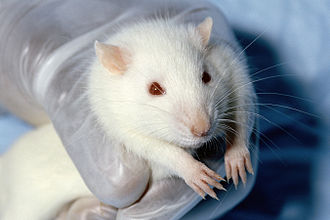Animal testing regulations
Animal Testing Regulations refer to the laws, guidelines, and ethical considerations governing the use of animals in research and testing. These regulations are designed to ensure the humane treatment of animals, minimize their suffering, and require that animal testing is conducted only when necessary and that alternatives are considered wherever possible.
Overview
Animal testing, also known as animal experimentation, involves using non-human animals in experiments that seek to control the variables that affect the behavior or biological system under study. This practice is common in medical research, cosmetics testing, chemical testing, and in the development of new drugs. The ethical, legal, and social implications of animal testing have led to stringent regulations in many countries.
Regulatory Framework
The regulatory framework for animal testing varies significantly around the world, with some countries having strict regulations and oversight, while others may have less stringent or no specific laws regarding animal experimentation.
United States
In the United States, the primary legislation governing animal testing is the Animal Welfare Act (AWA), which was enacted in 1966 and has been amended several times. The AWA sets standards for the treatment of animals in research, exhibition, transport, and by dealers. However, it does not cover all animals, as rats, mice, and birds bred for research are exempted. The Public Health Service Policy on Humane Care and Use of Laboratory Animals (PHS Policy) also guides the use of animals in federally funded research through the Office of Laboratory Animal Welfare (OLAW).
European Union
The European Union has some of the strictest regulations on animal testing, primarily governed by Directive 2010/63/EU on the protection of animals used for scientific purposes. This directive emphasizes the replacement, reduction, and refinement of animal use (the 3Rs), requiring that alternatives to animal testing be considered and that animal suffering be minimized.
United Kingdom
The UK has historically been at the forefront of animal welfare in research, with the Animals (Scientific Procedures) Act 1986 (ASPA) being a key piece of legislation, which was updated in 2012 to align with EU Directive 2010/63/EU. The Home Office regulates animal testing in the UK, with strict licensing and oversight mechanisms.
Ethical Considerations
The use of animals in research raises significant ethical questions about the balance between scientific advancement and animal welfare. The 3Rs principle (Replacement, Reduction, Refinement) is a cornerstone of ethical animal research and guides researchers in designing and conducting experiments that minimize animal use and suffering.
Alternatives to Animal Testing
Advancements in science and technology have led to the development of alternatives to animal testing, such as in vitro methods (cell and tissue cultures), computer modeling, and human volunteer studies. Regulatory agencies worldwide are increasingly accepting data from validated alternative methods to reduce the reliance on animal testing.
Conclusion
Animal testing regulations are crucial for ensuring that necessary research and testing involving animals are conducted ethically and humanely. While there is a global trend towards stricter regulations and the development of alternatives to animal testing, significant differences in regulatory frameworks exist between countries. Ongoing dialogue among scientists, ethicists, policymakers, and the public is essential to balance the benefits of scientific research with the ethical treatment of animals.
Transform your life with W8MD's budget GLP-1 injections from $125.
W8MD offers a medical weight loss program to lose weight in Philadelphia. Our physician-supervised medical weight loss provides:
- Most insurances accepted or discounted self-pay rates. We will obtain insurance prior authorizations if needed.
- Generic GLP1 weight loss injections from $125 for the starting dose.
- Also offer prescription weight loss medications including Phentermine, Qsymia, Diethylpropion, Contrave etc.
NYC weight loss doctor appointments
Start your NYC weight loss journey today at our NYC medical weight loss and Philadelphia medical weight loss clinics.
- Call 718-946-5500 to lose weight in NYC or for medical weight loss in Philadelphia 215-676-2334.
- Tags:NYC medical weight loss, Philadelphia lose weight Zepbound NYC, Budget GLP1 weight loss injections, Wegovy Philadelphia, Wegovy NYC, Philadelphia medical weight loss, Brookly weight loss and Wegovy NYC
|
WikiMD's Wellness Encyclopedia |
| Let Food Be Thy Medicine Medicine Thy Food - Hippocrates |
Medical Disclaimer: WikiMD is not a substitute for professional medical advice. The information on WikiMD is provided as an information resource only, may be incorrect, outdated or misleading, and is not to be used or relied on for any diagnostic or treatment purposes. Please consult your health care provider before making any healthcare decisions or for guidance about a specific medical condition. WikiMD expressly disclaims responsibility, and shall have no liability, for any damages, loss, injury, or liability whatsoever suffered as a result of your reliance on the information contained in this site. By visiting this site you agree to the foregoing terms and conditions, which may from time to time be changed or supplemented by WikiMD. If you do not agree to the foregoing terms and conditions, you should not enter or use this site. See full disclaimer.
Credits:Most images are courtesy of Wikimedia commons, and templates, categories Wikipedia, licensed under CC BY SA or similar.
Contributors: Prab R. Tumpati, MD

